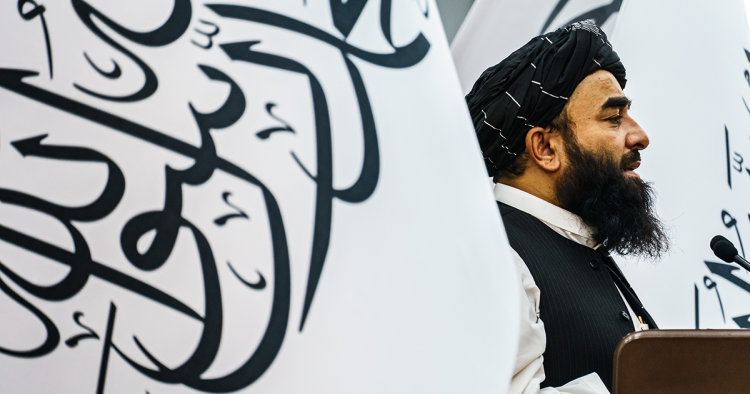Unanticipated swiftness of victory can be potentially befuddling, even for the victor. Multiple weeks after the Taliban’s dramatic capture of power, their leadership has finally announced the structure of a government that will rule the country. The new Islamic Emirate comprises leaders from the Taliban-led insurgency and portrays a hardline Islamist stance. The group had initially attempted to use the interregnum period to indulge in a rebranding exercise. Statements issued by its spokespersons in Kabul as well as in Doha indicated that the group did not wish to take revenge on the “collaborators” of the fallen government. Instead, it talked of an “inclusive” government, which although it will be governed by shari’a, could have some role for former government servants and women. All that speculation and those feeble attempts at building a narrative of an accommodating and reformed Taliban have now been put to rest, however.
For the Taliban, transformation from an insurgent group responsible for thousands of deaths in the last two decades to a governing entity is a project laden with monumental challenges. The withdrawal of the United States and the international community translates into a sudden drying up of international aid and a flight of experts and government servants. A looming drought, skyrocketing inflation, and impending economic collapse are challenges that cannot be managed with the blessings and assurances of cooperation from Beijing, Moscow, and Islamabad alone. The Taliban need to restore the international connections that sustained the civilian governments in Kabul for the last 20 years. That’s one compulsion that was driving the image makeover exercise.
Although gaining control over the country may have been effortless for the group, consolidation of power posed a different challenge. Moreover, the Taliban also face a stiffer challenge internally when it comes to managing the differences between the Doha Shura and the hardliners, including the Kandahar Shura and Haqqani Network (HN). The fissures were evidently responsible for the delay in the formation of government and are bound to resurface. Nevertheless, the Taliban need a modicum of rigidity to keep their flock together. Such intransigency translated into unending violence before the capture of Kabul. Even as peace negotiations continued in Doha, unceasing insurgent attacks claimed the lives of soldiers and civilians all over Afghanistan. Continued violence not only maintained pressure on the government in Kabul, but kept the factions like the HN, whose belief in the peace process was only minimal, united with the parent group.
Following their victory, this rigidity will invariably translate into the establishment of a regressive regime that silences all opposition, undermines the democratic initiatives of the past years, and tramples upon the rights of women and minorities, thereby conforming unequivocally to the ideology that ruled Afghanistan in the 1990s. Without it, the group may face the danger of disintegration, with its cadres flocking to the Islamic State-Khorasan Province and even al-Qaeda, which profess a purist, dogmatic worldview. In the days to come, as the veneer fades, the Taliban will make way for the usual, rather than the exception. Indeed, this already seems to be happening.
Amid attempts to project itself as an entity with which the West can do business, reports of atrocities, revenge killings, and persecution have continued to surface in various provinces. Taliban cadres are conducting door-to-door searches for thousands of Afghans who could not be evacuated and are now believed to be in hiding. Scarce media reporting from Kabul may have camouflaged the scale of such incidents in the provinces, but there is little doubt that the group is committed to sending a message of retribution to its vanquished adversaries. The worst affected are women and minority groups. As the days pass, the lack of a concerted effort by the international community to stop the violence against women, minorities, and the remnants of the ousted government who now form the dispersed opposition to the new Islamic Emirate may lead to a return of the situation in the 1990s. Sadly, history repeats itself and yet, no one ever wants to learn.
Dr. Shanthie Mariet D’ Souza is a Founding Professor at the Kautilya School of Public Policy, Hyderabad; Founder and President of Mantraya; and a Non-resident Scholar at MEI. She has worked in the governmental and non-governmental sector in various provinces of Afghanistan for more than a decade. She can be contacted at shanthied@gmail.com. The views expressed in this piece are her own.
Photo by MARCUS YAM/LOS ANGELES TIMES
The Middle East Institute (MEI) is an independent, non-partisan, non-for-profit, educational organization. It does not engage in advocacy and its scholars’ opinions are their own. MEI welcomes financial donations, but retains sole editorial control over its work and its publications reflect only the authors’ views. For a listing of MEI donors, please click here.













